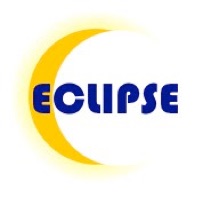The following examples were recorded during a session at the ASCEND project, a programme of after school enrichment for able 14-15 year old science students from Cambridge comprehensive secondary schools.
The Science Analogy game was intended as a fun activity, that was used during the conference style registration and refreshments period at the start of one of the ASCEND sessions. The Science Analogy game is a card game where players have to construct analogies between science concepts and various everyday ideas or phenomena.
(The materials for the game are available as part of the SEP Publication, 'Enriching School Science for the Gifted Learner' - the text of which may be obtained here.) The ASCEND materials as published on the CDRom are all available from the National STEM Centre eLibrary.. Resources on the site can only be accessed by those registered, but registration is free. Once registered you will have access to an growing library of electronic resources.
Recordings were made (with the agreement of the students) of two groups of students who played the game in the Faculty Cafeteria at the University of Cambridge during the ASCEND project. The students had minimal introduction to the game (they had a set of written instructions), and had never played it before - so this was a novel task.
The students in the two groups suggested a wide range of suggested similarities between the science concepts and everyday concepts. (Some of these could not be fully made out in the recordings.)
Not all of the suggestions put forward by the students met the criteria of an analogy where there is a mapping of a structural similarity between two systems. The various suggestions that could be identified form the recordings are presented below.
Some of the mooted analogies were limited to identifying similarities, so were in effect similes rather than fully developed analogies.
| Target science concept | Simile | Similarity |
|---|---|---|
| acceleration | string | string is like acceleration (because) when things accelerate and you look at them through a camera they go like blurred and long and string is blurred and long |
| adrenalin | brick | Adrenalin is like a brick because when they get up too high they start falling they start falling |
| atom | Smith (a stereotypical name) | Smith is like an atom because both are extremely common |
| carbohydrate | string | string is like carbohydrate (as both have) long strands; starch is a carbohydrate and starch is a long thin strand and string is a long thin strand |
| chemical reaction | cola | A chemical reaction is like cola because it’s fizzy and it bubbles |
| chemical reaction | Hell | chemical reactions are like hell because the common theory of hell is lots of fire…and burning, and many chemical reactions are caused by a burning heat - hell is exothermic |
| DNA | high-heel shoes | DNA is like high-heels (because) every woman’s got a pair |
| electric current | smile | an electric current is like a smile because from the right charge and through the right battery it ends up brightening up your day |
| energy | control centres | Energy is like a Control Centre because …control centres make things work and energy makes things work |
| evaporation | fuming | evaporation is like fuming (as) they both make steam |
| ionic bond | love | an ionic bond is like love because it’s all about two things being joined |
| light | money | the light is like money because you never know how much you’ve got till you’re sitting in the dark without it |
| molecule | Bible | a bible is like a molecule both contain information |
| reproduction | Versace | reproduction is like Versace because I presume Versace started as something very small and has grown and multiplied – reproduced – into big |
| testosterone | agent | testosterone was like an agent because they both made things happen |
However, there were also student-generated analogies that went beyond simile.
Return to ECLIPSE homepage
List of science topics

Dr Keith S Taber kst24@cam.ac.uk
University of Cambridge Faculty of Education
© Keith S Taber, 2012-2013